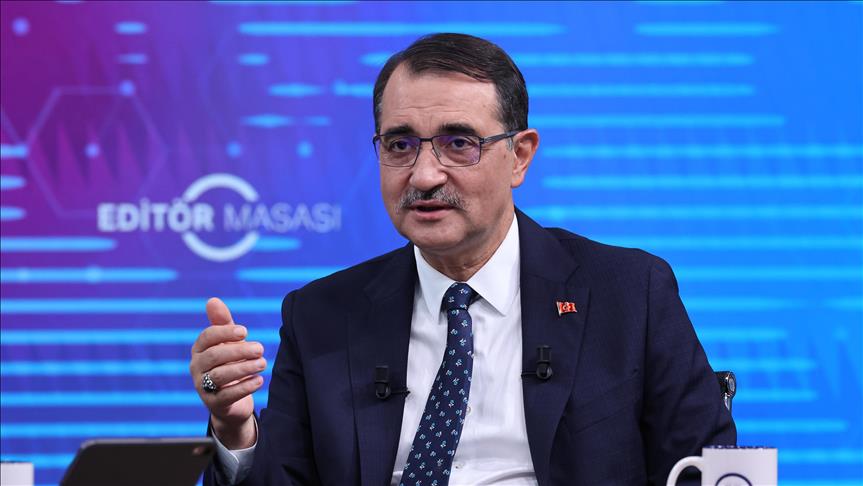No disruptions to natural gas supply are expected in Türkiye this winter provided suppliers comply with their shipment plans, the country’s Energy and Natural Resources Minister Fatih Donmez said on Thursday.
Donmez’s comments came during Anadolu Agency's (AA) Editor's Desk where he referred to the global energy crisis in part due to supply disruptions from the Russia-Ukraine war.
Sanctions on Russian supplies are forcing countries in the European Union (EU) to reduce natural gas demand by 15% and to increase storage levels before the winter season.
He explained that Türkiye’s stance is not in support of the decisions taken on sanctions against Russia given its current contracts with Russia, and also Azerbaijan and Iran.
This strategy ensures the lines of communication are open and any increases in gas if necessary are possible, he explained.
- Payment in Turkish liras is on table
The request from Russia to pay for gas transactions in rubles is a controversial topic in European circles, although this has been a subject of bilateral talks between Türkiye and Russia for several years.
Turkish and Russian leaders agreed on natural gas payment in rubles during a meeting last week in Sochi where payment in Turkish liras was also up for discussion and which Donmez described as a “strong alternative” that will become clear in the coming days.
- LNG and storage capacities
Donmez highlighted the role that LNG plays in providing security of supply and energy diversification for the country, which currently hosts four LNG terminals.
A fifth terminal is under construction in Saros in the Edirne province, which should take 12 months to complete. A Floating Storage and Regasification Unit (FSRU) is also an option that is in the works for use as a backup, he said.
Gas storage capacity is being addressed to ensure the security of supplies through the country’s two underground facilities at Salt Lake (Tuz Golu) and Silivri.
Total natural gas storage capacity will increase by almost 50% in the Silivri underground facility from 3.2 billion cubic meters (bcm) to 4.6 bcm by the year end, Donmez said.
“87% of these facilities are currently full. Our target is to have them at full capacity in September,” he said.
By Ebru Sengul Cevrioglu
Anadolu Agency
energy@aa.com.tr


